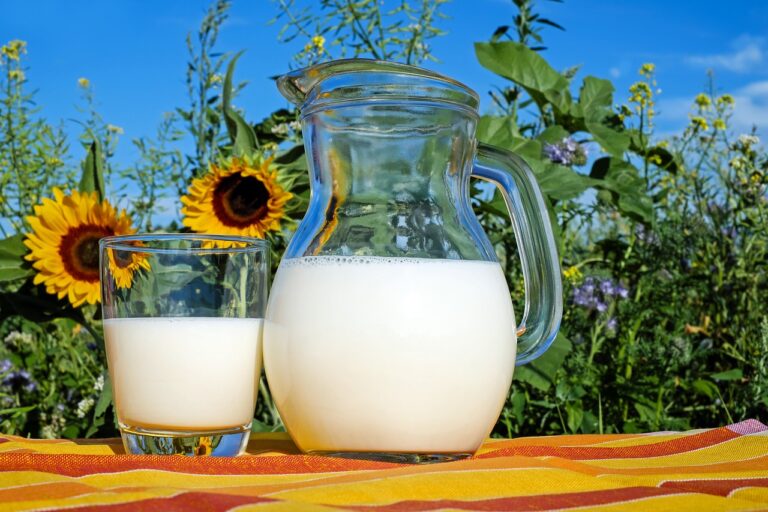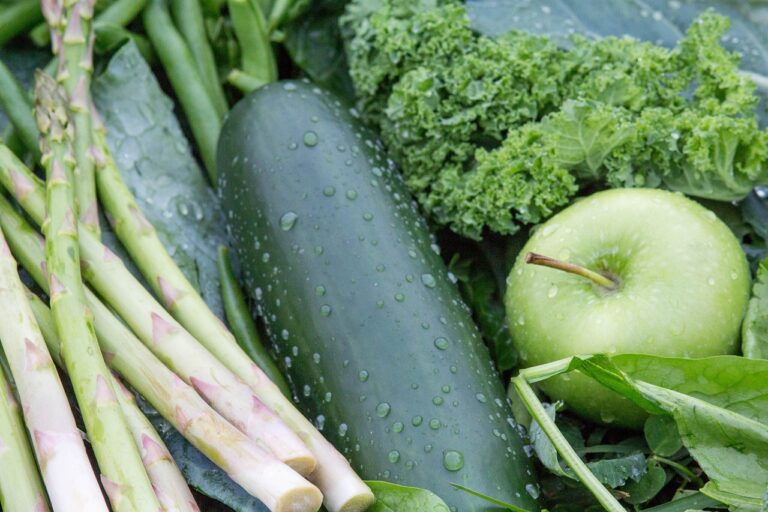When it comes to shedding pounds and achieving a healthier lifestyle, many people turn to various diets, exercise routines, and supplements. One popular beverage that often comes up in discussions about weight loss is green tea. The question arises: Is green tea good for weight loss? In this blog, we will delve into the potential benefits of green tea, explore the scientific evidence behind its weight loss claims, and provide an in-depth analysis of whether green tea is a viable aid for weight management. So, let’s uncover the truth and determine is green tea good for weight loss.

Contents
ToggleIs Green Tea Good for Weight Loss?
Understanding Green Tea
What is Green Tea?
Green tea is made from the leaves of the Camellia sinensis plant. Unlike black tea, green tea leaves are not fermented, which helps retain their natural antioxidants and beneficial compounds. These compounds, including catechins and caffeine, are believed to contribute to green tea’s potential weight loss properties.
Key Components of Green Tea
- Catechins: These are powerful antioxidants that may enhance fat burning and boost metabolism. Epigallocatechin gallate (EGCG) is the most abundant catechin in green tea and is often highlighted for its potential weight loss benefits.
- Caffeine: While green tea contains less caffeine than coffee, it still provides a mild stimulant effect that can aid in weight loss by increasing energy expenditure and fat oxidation.
- Amino Acids: Green tea contains the amino acid L-theanine, which promotes relaxation and may counteract the jittery effects of caffeine.
The Science Behind Green Tea and Weight Loss
Boosting Metabolism
One of the primary reasons green tea is good for weight loss is its ability to boost metabolism. Studies have shown that green tea can increase the body’s metabolic rate, helping to burn more calories throughout the day. The catechins in green tea, particularly EGCG, play a significant role in this metabolic boost.
Fat Oxidation
Green tea has been found to enhance fat oxidation, which is the process of breaking down fat molecules for energy. This effect is particularly noticeable during exercise. Consuming green tea before a workout can increase fat burning, making it a valuable addition to a weight loss regimen.
Appetite Suppression
Some research suggests that green tea can help reduce appetite, making it easier to consume fewer calories. The combination of caffeine and catechins may influence hormones that regulate hunger, leading to reduced food intake and, consequently, weight loss.
Improved Insulin Sensitivity
Green tea has been shown to improve insulin sensitivity, which can help regulate blood sugar levels and reduce the risk of developing type 2 diabetes. Stable blood sugar levels can also prevent energy crashes and cravings, contributing to better weight management.
Enhanced Physical Performance
By improving fat oxidation and increasing energy levels, green tea can enhance physical performance. This can lead to more effective workouts, helping individuals burn more calories and achieve their weight loss goals.
Practical Ways to Incorporate Green Tea into Your Diet
Drinking Green Tea
- Brew Fresh: To maximize the benefits, brew fresh green tea using high-quality leaves. Avoid adding too much sugar or sweeteners, as they can negate the weight loss benefits.
- Multiple Cups a Day: Consuming 2-3 cups of green tea daily can provide a consistent supply of its beneficial compounds. Spread out your consumption throughout the day to maintain a steady metabolic boost.
- Pre-Workout Drink: Drink a cup of green tea before exercising to enhance fat burning and improve performance.
Green Tea Supplements
- Capsules and Extracts: For those who prefer not to drink tea, green tea supplements in the form of capsules or extracts are available. These can provide concentrated doses of catechins and caffeine.
- Dosage: Follow the recommended dosage on supplement labels. Too much caffeine or catechins can cause adverse effects, such as jitteriness or digestive issues.
Incorporating Green Tea into Meals
- Smoothies: Add brewed green tea or matcha powder to smoothies for an antioxidant boost.
- Cooking: Use green tea as a base for broths or soups, or incorporate matcha powder into baking recipes for a subtle flavor and health benefits.
Potential Side Effects and Considerations
Caffeine Sensitivity
While green tea contains less caffeine than coffee, individuals who are sensitive to caffeine may still experience side effects such as insomnia, jitteriness, or increased heart rate. It’s important to monitor your body’s response and adjust consumption accordingly.
Interactions with Medications
Green tea can interact with certain medications, including blood thinners and some antidepressants. If you are on medication, consult with your healthcare provider before significantly increasing your green tea intake.
Iron Absorption
Green tea contains tannins, which can interfere with iron absorption. To minimize this effect, avoid drinking green tea with meals, especially if you have an iron deficiency or are at risk for anemia.
Long-term Benefits of Green Tea Beyond Weight Loss
Antioxidant Properties
The antioxidants in green tea, particularly catechins, help protect the body from oxidative stress and inflammation. This can reduce the risk of chronic diseases, such as heart disease and cancer, and promote overall health and longevity.
Mental Health
The L-theanine in green tea promotes relaxation and reduces stress, which can have a positive impact on mental health. Improved mental well-being can indirectly support weight loss efforts by reducing stress-related eating.
Skin Health
Green tea’s anti-inflammatory and antioxidant properties can benefit skin health, reducing signs of aging and promoting a clearer complexion. A healthy appearance can boost self-esteem, further motivating weight loss and healthy lifestyle choices.
Heart Health
Regular consumption of green tea has been linked to improved heart health. It can lower LDL cholesterol levels and improve blood vessel function, reducing the risk of cardiovascular diseases. A healthy heart supports an active lifestyle, which is crucial for maintaining a healthy weight.
Case Studies and Real-life Experiences
Success Stories
Numerous individuals have reported positive outcomes from incorporating green tea into their weight loss journeys. These personal anecdotes often highlight improved energy levels, reduced cravings, and more effective workouts as key benefits.
Scientific Studies
Several scientific studies support the notion that green tea is good for weight loss. For instance, a meta-analysis of 11 studies found that green tea supplementation significantly reduced body weight and body mass index (BMI) in participants.
In conclusion, is green tea good for weight loss? The evidence suggests that green tea can be a valuable tool in a weight loss regimen, thanks to its ability to boost metabolism, enhance fat oxidation, suppress appetite, and improve insulin sensitivity. However, it is not a magic bullet and should be combined with a balanced diet and regular exercise for the best results. As with any supplement, it’s important to consider individual health conditions and consult with a healthcare provider if necessary. By making green tea a part of a holistic approach to weight management, you can enjoy its numerous health benefits while working towards your weight loss goals.
People Also Ask
1. How much green tea should I drink for weight loss?
Answer: For optimal weight loss benefits, it is generally recommended to drink 2-3 cups of green tea per day. This amount provides a sufficient dose of catechins and caffeine to boost metabolism, enhance fat oxidation, and suppress appetite without causing adverse effects. Drinking green tea before meals and exercise sessions can maximize its weight loss potential.
2. Can I lose belly fat by drinking green tea?
Answer: Yes, green tea can help reduce belly fat. The catechins in green tea, particularly EGCG, have been shown to target abdominal fat by increasing fat oxidation and enhancing metabolism. Regular consumption of green tea, combined with a healthy diet and exercise, can contribute to a reduction in visceral fat, which is the fat stored around the abdomen.
3. What is the best time to drink green tea for weight loss?
Answer: The best times to drink green tea for weight loss are:
- In the morning: Drinking green tea in the morning can kickstart your metabolism and provide a gentle caffeine boost to increase energy levels.
- Before workouts: Consuming green tea before exercise can enhance fat burning and improve performance due to its caffeine and catechin content.
- Between meals: Drinking green tea between meals can help suppress appetite and prevent unnecessary snacking by promoting a feeling of fullness.
Incorporating green tea into these key times throughout the day can maximize its weight loss benefits and support overall health.
Trendy Apps About Health And Food
If you are a health enthusiastic then you might wanna try some best trendy apps to help you with your food and health.
MyFitnessPal
MyFitnessPal is renowned for its comprehensive food database, which includes over 14 million foods. It makes food logging easy with features like barcode scanning and a robust breakdown of daily macronutrient intake. This app is ideal for those looking to track their food intake meticulously and gain insights into their nutritional habits.
Fooducate
Fooducate focuses on not just calorie counting but also the quality of calories consumed. It provides detailed nutritional information and assigns grades to foods based on their healthiness. The app also offers community support and educational tips on nutrition, making it a great choice for those who want to learn more about healthy eating and improve their dietary choices.
PlateJoy
PlateJoy offers personalized meal plans designed by nutritionists, catering to various dietary preferences and restrictions. The app generates shopping lists and can integrate with grocery delivery services. It’s especially beneficial for those with specific dietary needs, such as diabetics or individuals on low FODMAP plans, providing tailored meal plans that align with their health goals.






[…] […]
[…] Turmeric, a vibrant yellow-orange spice derived from the root of the Curcuma longa plant, has been a cornerstone of traditional medicine, particularly in India and China, for thousands of years. This… Read More […]
[…] Turmeric, a vibrant yellow-orange spice derived from the root of the Curcuma longa plant, has been a cornerstone of traditional medicine, particularly in India and China, for thousands of years. This… Read More […]
[…] Turmeric, a vibrant yellow-orange spice derived from the root of the Curcuma longa plant, has been a cornerstone of traditional medicine, particularly in India and China, for thousands of years. This… Read More […]
[…] Turmeric, a vibrant yellow-orange spice derived from the root of the Curcuma longa plant, has been a cornerstone of traditional medicine, particularly in India and China, for thousands of years. This… Read More […]